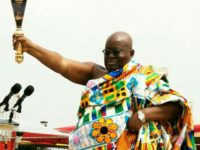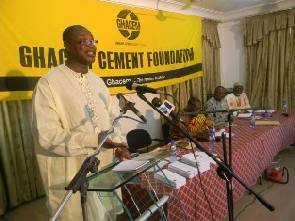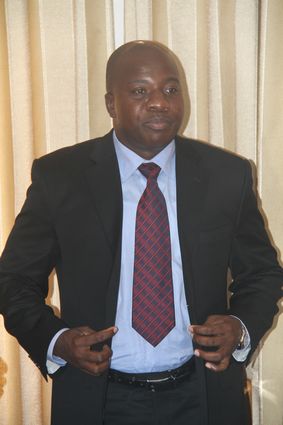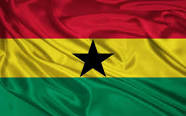 Ghana’s former President, Flt Lt Jerry John Rawlings has called on governments and political leadership to inspire and embolden the people to participate in development-oriented roles that benefit the state.
Ghana’s former President, Flt Lt Jerry John Rawlings has called on governments and political leadership to inspire and embolden the people to participate in development-oriented roles that benefit the state.
Development, the former President stated, should be a shared responsibility and not handed down to the people.
In a statement delivered at the launch of the United Nations Volunteers (UNV) ‘State of the World’s Volunteerism Report 2015’ in Nairobi, Kenya on Friday, President Rawlings said:
“Self-actualization means the people must feel they have played a role in the process right from its conception – that free will to sacrifice for a common goal and for a common agenda, leading to a shared sense of accomplishment.”
The former President who served as an Eminent Person for Volunteerism in 2001 said:
“Leadership by its actions and body language should empower and embolden the people into action. Leaders should not take away the liberating effect of action.
“Whether at the level of a small village or a nation, it is leadership that inspires others to make the choice to get involved. But it must be leadership by example. Those of us in power should never feel intimidated by the power of the people. Political, traditional and other social leaders should rather feel legitimately empowered by a strong, bold people. Development will thrive if we work together and are strong together. Let’s not derive our strength and power from their weakness.
“Governments must create the conditions for people to see volunteerism as an investment in their local and global communities, and as an investment towards a sustainable world for themselves and descendants.
“My message to governments is that you can’t govern effectively and develop a country without harnessing the expertise and energy that you find in the wider populace, and volunteers are the people to help you do this,” President Rawlings said.
Flt Lt Rawlings expressed concern about the “disturbing loss of the spirit of volunteerism or sense of self-help” in Ghana. He attributed it to “the air of cynicism, born of difficult economic times and constant allegations of corruption and inefficiency in governance, including government agencies and departments.
“It was disheartening to note that days after the disaster and massive floods, debris was still strewn across several parts of the city, as the citizenry expected government to take charge of the huge recovery process with little sense of individual moral responsibility or urgency.
Former President Rawlings recalled the massive spirit of volunteerism that existed during the early days of the revolution. He said:
“During my tenure as Head of State under the Provisional National Defence Council (PNDC), we had an avalanche of crises pouring in at once. The economy was on the verge of collapse, with government revenue dwindling from 20 percent of GDP in 1970 to 5 per cent by 1982, inflation was running at 200 percent, while Ghana’s chief export, cocoa production, had fallen drastically, along with diamonds, gold, and timber. The struggle for basic necessities had also fractured citizens’ involvement in decision-making processes regarding their governance.
“This, coupled with massive corruption, called “kalabule” in local parlance, had eaten at the soul of Ghanaian society, creating a charged air and an inevitable atmosphere for an explosion.
“Out of that explosion was also reborn a massive spirit of volunteerism and a spirit of self-help. It was no surprise when students and workers translated their anger into productive action to resolve pressing challenges. Unprompted, thousands of students in early 1982 voluntarily left their classrooms to carry cocoa to the ports for export, from the farms in the hinterland where the crop was in danger of being left to rot. A record haulage was transported to the ports by the renewed sense of volunteerism and sense of purpose exhibited by the students and members of the communities, who regularly supported the students with food and a place to sleep.
“The students deeply understood the value of their citizenship, and acted with an infectious passion that galvanised the entire nation toward community service. I joined them often, including salvaging sacks of cocoa from a derailed train in Eastern Ghana. Six months later, the students returned to their campuses with a commitment to serve causes larger than themselves.
“I saw that we would never improve social and economic conditions in Ghana without the systematic involvement at the grass roots of local community groups, and volunteer organisations.”
PLEASE FIND BELOW THE FULL TEXT OF HIS ADDRESS:
GUEST OF HONOUR H.E. JERRY JOHN RAWLINGS FORMER PRESIDENT OF THE REPUBLIC OF GHANA ON THE OCCASION OF
The Launch of United Nations Volunteers (UNV)
State of the World’s Volunteerism Report 2015
“Transforming Governance”
Nairobi, Kenya 19 June 2015 REMARKS BY H.E. JERRY JOHN RAWLINGS
Vice-President William Ruto,
UNV Executive Director Richard Dictus,
Report Lead Author Madam Amanda Mukwashi,
Tapiwa Kamaruko, UNV Regional Manager,
Members of the Diplomatic Corps,
Members of the Media,
Distinguished Guests,
Ladies and Gentlemen
I am very honoured to be invited to participate in this august Launch of the United Nations Volunteers’ “State of the World’s Volunteerism Report 2015,” with special focus on “Transforming Governance.”
I come here at a time when the citizens of Ghana are in mourning after floods and fire claimed the lives of more than one hundred and fifty (150) fellow countrymen and women barely two weeks ago.
Sadly, the disaster exposed a disturbing loss of the spirit of volunteerism or sense of self-help as we referred to it during the days of the Ghanaian revolution. It was disheartening to note that days after the disaster and massive floods, debris was still strewn across several parts of the city, as the citizenry expected government to take charge of the huge recovery process with little sense of individual moral responsibility or urgency.
What became very evident was the air of cynicism, born of difficult economic times and constant allegations of corruption and inefficiency in governance, including government agencies and departments.
Ladies and gentlemen,
I come to this event as a passionate advocate for Volunteerism. In 2001, I had the special privilege of serving as Eminent Person in support of the United Nations International Year of Volunteers. This gave me an opportunity to work with the organization to deepen the critical relevance of volunteerism to development.
From post-conflict countries ravaged by war, or diseases and pandemics, to those in upheaval from natural disasters, United Nations Volunteers are some of the first civilians to show up within the emergency phase, to perform the unglamorous yet necessary tasks of setting up basic structures, supply lines, institutions and systems to rebuild a functioning community. Working with ordinary people, UN Volunteers have always made a difference in bridging the gap between poverty and development.
As some may recall, I have been involved in the campaign to contain the HIV/AIDS epidemic in Africa, which involves vast numbers of volunteers, taking me all over the continent and beyond. I worked with people living with HIV/AIDS, and understand at once that with the social networks and support provided by volunteers, people living with HIV/AIDS have become an active part of society.
But this is a report and an event to spark a global conversation on the role of volunteers in improving governance that is so critical to future development success.
During my tenure as Head of State under the Provisional National Defence Council (PNDC), we had an avalanche of crises pouring in at once. The economy was on the verge of collapse, with government revenue dwindling from 20 per cent of GDP in 1970 to 5 per cent by 1982, inflation was running at 200 per cent, while Ghana’s chief export, cocoa production, had fallen drastically, along with diamonds, gold, and timber. The struggle for basic necessities had also fractured citizens’ involvement in decision-making processes regarding their governance.
This, coupled with massive corruption, called “kalabule” in local parlance, had eaten at the soul of Ghanaian society, creating a charged air and an inevitable atmosphere for an explosion. The country had lost too many opportunities to punish crime and the human psyche was not going to allow crime and corruption to perpetuate itself. The force of conviction had to take its rightful place.
Out of that explosion was also reborn a massive spirit of volunteerism and a spirit of self-help. It was no surprise when students and workers translated their anger into productive action to resolve pressing challenges. Unprompted, thousands of students in early 1982 voluntarily left their classrooms to carry cocoa to the ports for export, from the farms in the hinterland where the crop was in danger of being left to rot. A record haulage was transported to the ports by the renewed sense of volunteerism and sense of purpose exhibited by the students and members of the communities, who regularly supported the students with food and a place to sleep.
The students deeply understood the value of their citizenship, and acted with an infectious passion that galvanised the entire nation toward community service. I joined them often, including salvaging sacks of cocoa from a derailed train in Eastern Ghana. Six months later, the students returned to their campuses with a commitment to serve causes larger than themselves.
I saw that we would never improve social and economic conditions in Ghana without the systematic involvement at the grass roots of local community groups, and volunteer organisations. These were the people who knew intimately what the problems were, and who were testing solutions in their daily lives. So we set up volunteer committees, called Committees for the Defence of the Revolution (CDRs), that gave a voice to the needs and priorities of local communities.
When Ghana experienced drought and food shortages in 1983, these committees and other grassroots organisations spearheaded fish, crop, and livestock farming. They later became the bedrock of the National Mobilization Task Force that coordinated the participation of cadres or volunteers at the regional and national levels in supervising and monitoring development programmes.
Again in 1983 when Nigeria deported over one million Ghanaians living in that country, millions of Ghanaians welcomed them in various communities, offering them food and accommodation, with the local traditional leadership providing land free for the returnees to start farming in a bid to resettle them. And they did a great job of it! The spirit of volunteering was rife and bubbling with inexhaustible energy. People were inspired by the desire to protect the community interest coupled with the fact that Ghanaians from diverse backgrounds were directly participating in decision-making right from the grassroots.
During those dire economic times, the volunteers were essential to the success of our work, and we respected them as expert partners. Volunteers are the eyes and ears of the community, contributing valuable insights about how to improve things, as well as channel the people’s energy toward problem-solving.
Another important achievement of volunteers’ work in Ghana involved the crucial issue of Women’s Rights: After years of advocacy work from countless women and human rights activists led by the 31st December Women’s Movement, PNDC Law 111, also known as The Intestate Succession Law was passed in 1985. It was the first law that addressed the inheritance rights of women and spouses in general who were often left destitute when their marriage partners died intestate.
The 31st December Women’s Movement was one of the sustained rallying points for training women in public advocacy, the fight for economic empowerment, the protection of girls’ rights, women’s access to good healthcare, and community activism. Many of the women who were first elected to Parliament in Ghana’s Fourth Republic in 1992, cut their teeth volunteering for the 31st December Women’s Movement.
The era that followed 1992 saw the transformation of several community volunteer groups into structured civil society groups as well as political organizations.
Beyond Ghana
I have also witnessed determined volunteerism in action countless times in the West African Region, the continent, and beyond. More recently, we all saw the compassion that propelled health workers and volunteers to risk their lives during the Ebola Virus Disease epidemic in the region. No salary or incentives can compensate them for the enormous risk they took with their own lives. Those selfless volunteers deserve our deepest gratitude.
What is Volunteerism?
Volunteerism trains a person to be disciplined, ALWAYS, no matter the circumstances, to develop the capacity to handle difficulties with skill. It nurtures grit, builds character, and enables one to tread into the unknown.
To volunteer is to seek to change the world from what it is now, to what it ought to be, by generating passion for righting societal wrongs. In short, volunteerism makes a person an active CITIZEN, one who not only holds leadership accountable but also cultivates the responsive spirit of accountability inside themselves.
To volunteer is to be able to walk in another person’s shoes. Volunteerism forges a tighter bond of human interdependence around the globe, and sows seeds of healthy civil society and civic engagement, whose core value cannot be quantified, nor remunerated.
As a powerful means of engaging people to participate in tackling development challenges, volunteerism can transform the pace and nature of development, benefitting both society at large and the individual volunteer by strengthening trust, solidarity and reciprocity among citizens.
The spirit of volunteerism is second to nature. It gives birth to and sustains the sense of justice that humanity craves for. The reward for the volunteer is not in a fee or an allowance, but in the inward satisfaction of doing good, of aligning oneself closer to nature, to perfection, to a state of being at peace with our conscience.
But how do you sustain the spirit of volunteerism? Altruism alone does not last. Governments must create the conditions for people to see volunteerism as an investment in their local and global communities, and as an investment towards a sustainable world for themselves and their descendants. As we say in Ghana, “Walantu walansa,” or “harambee” here in Kenya, or “Ubuntu” in Southern Africa, the principles are the same in valuing interdependence.
Relationship between Volunteerism and Good Governance
In our young democracies, especially on the African continent, leaders need to hear constructive contributions from their people. Apathy kills the promise of good governance. Africa is a continent of vibrant volunteerism based on long held values of Ubuntu and the spirit of mutual support.
Unfortunately, the global economic philosophy appears to be destroying the fabric of volunteerism. Excessive capitalism has drawn us into unethical circumstances so much so that in difficult situations we fail to sacrifice for each other. Many of our kith and kin are fleeing to Europe in droves because there is no longer an ingrained sense of volunteerism to cater for each other. The individual quest for economic sustenance does not have the requisite local and global political backing and many prefer to flee the horrid conditions of internal conflict to cross into Europe to seek greener pastures at the peril of their lives.
During the revolution days in Ghana, I witnessed communities digging through hard rock with local implements in their quest to build wells for water. God knows when they were going to hit water. But they had a belief, a sense of commitment to their community and a desire to sacrifice for the good of all.
My message to governments is that you can’t govern effectively and develop a country without harnessing the expertise and energy that you find in the wider populace, and volunteers are the people to help you do this. Development should be a shared responsibility. It should not be handed down to the people. Self-actualization means the people must feel they have played a role in the process right from its conception – That free will to sacrifice for a common goal and for a common agenda, leading to a shared sense of accomplishment.
Volunteers and volunteerism are catalysts for focusing on the things that matter and holding us leaders accountable. To enable this feedback loop to be potent, as the UNV Report says: “the motivation and commitment of individual volunteers needs to be matched by responsive and supportive governments and development actors.”
In practice, that means legislating to protect the status of volunteers and setting up structures to channel their contributions into decisions that improve people’s lives. It is commendable that increasingly countries across the continent are enacting laws to guide volunteerism and nurture it as part of the socio-cultural and socio-economic development process. It is commendable that a country such as Togo in West Africa has enacted an effective volunteerism law. What is more commendable is the government’s commitment to harnessing the volunteerism potential through significant annual budgetary allocations.
It is one thing to talk about listening to the people, quite another to set up the structures and channels so that their voices can actually be heard, whether we like what we hear or not.
This year, governments are reviewing how well they met or failed to meet the Millennium Development Goals. But, what happens after MDG 2015? Who helps to catalyse action?
We face Increasing populations, dwindling resources, food insecurity, the accelerating threat of climate change, diseases and health challenges, income inequality, and human security. Communities don’t stop needing to develop just because a milestone has been reached. The danger of complacency is that we forget that active citizens are needed even more now to keep governments’, International Organizations’, and Development Partners’ feet to the fire to find innovative ways to enable people to live in dignity.
Conclusion
To become a volunteer is, by definition, a free choice made by an individual. It is a choice to do something to help others and to contribute towards the wellbeing of a locality, a nation, or even the world and to do this without thought of material gain. What makes an individual make such a choice? What nurtures a social conscience? It is inspiration.
Ladies and Gentlemen,
Where does inspiration come from? It may have its roots in the individual’s upbringing or in something they have read. But most often it comes from leadership. Leadership by its actions and body language should empower and embolden the people into action. Leaders should not take away the liberating effect of action.
Whether at the level of a small village or a nation, it is leadership that inspires others to make the choice to get involved. But it must be leadership by example. Those of us in power should never feel intimidated by the power of the people. Political, traditional and other social leaders should rather feel legitimately empowered by a strong,bold people. Development will thrive if we work together and are strong together. Let’s not derive our strength and power from their weakness.
The 2015 State of the World’s Volunteerism Report deserves commendation for its comprehensive nature and desire to revitalise a cultural framework that is ingrained in most societies across the world.
We all have a responsibility to raise this discussion to a bigger audience. I call on the media and all participants here to become ambassadors of the development model called volunteerism. This is the weapon we requiretowards the next phase of global development.
Thank you.
******THE END******




